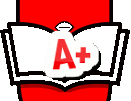Article Critique of Tom R. Tyler
Tyler, T. R. (2012). Defining Behavioral Business Ethics: The Role of Morality in Business Organizations1. Behavioral Business Ethics: Shaping an Emerging Field, 173.
Article Critique: Defining Behavioral Business Ethics
Order 100% Plagiarism Free Article of Tom R. Tyler
Article Critiques guidelines:
To enhance critical analysis of academic work, each student will be assigned specific readings throughout the semester to critically evaluate in written and oral formats. Each critique should follow APA format and should be four to five pages in length. The article’s citation should be provided at the top of the first page. Follow this format for each critique: (Exactly) !!!!
1. Your summary. In three or four sentences, summarize the article’s topic, key points, and specific strengths and weaknesses. Then address the following areas:
2. Style. Is the article well written? Does it clearly communicate its ideas? Is it written in short, simple sentences? Does it adhere to the specified format (e.g., APA, MLA)?
3. Abstract. Does the abstract accurately represent the article? (Does the article do what abstract says it will?) Is the abstract limited to a brief presentation of key points? Does the abstract define the research question and explain the research design (one sentence each)? Does the abstract explain results in one or two sentences with no details or complexities? (If there were complexities or unexpected results, it says only “Some unexpected results were obtained” or “Additional and unanticipated analyses were called for”?) Is only the central point of conclusion mentioned?
4. Topic Choice. Which of the five criteria for effective topics (Colquitt & George, 2011 – see Week 2 assigned readings) are met by this article? How?
Article Critique: Defining Behavioral Business Ethics
Order 100% Plagiarism Free Article of Tom R. Tyler
5. Introduction. Does the introduction “set the hook” (Grant & Pollock, 2011 – see Week 2 assigned readings)? Specifically, a) does it address the “who cares” question? How? b) Does it address the “what do we know/don’t know” question? What methods are used to “establish the field” and “identify the field” (Grant & Pollock, 2011)? And c) does it explain what will be learned? Additionally, is the level of analysis (e.g., individual, group) stated? Are key constructs and terms clearly defined?
6. Theory Section (this may also be titled “Literature Review”, “Theory and Hypotheses”, or something similar). Sparrowe and Mayer (2011 – see Week 2 assigned readings) explain the difference between a theory section and a literature review. No matter how the section is titled, does it build a logical, theory-based argument that supports the hypotheses? By which of the three methods are hypotheses substantiated (Sparrowe & Mayer, 2011)? Are boundary conditions identified? If multiple theories are used, how are they used (Sparrowe & Mayer, 2011)? Is literature cited as primary sources, not secondary sources? Last, is there a clear and logical approach to the topic, so that even if you are not familiar with topic, you can follow what the author is saying about topic, past studies, challenges or paradoxes in the literature, and implications for the present study?
Article Critique: Defining Behavioral Business Ethics
Order 100% Plagiarism Free Article of Tom R. Tyler
7. Methods.
a. For a theoretical paper: Does the paper present an appropriate model, conceptual framework or propositions to facilitate further research?
b. For an empirical paper: Does the author provide a clear and easy to understand outline of the design of the research (e.g. qualitative or quantitative; experimental, quasi-experimental)? Are data collection and sample described? Are variables properly operationalized and measured? Is the design appropriate for the questions asked by the study? ? Why or why not (Bono & McNamara, 2011 – see week 2 assigned readings)?
8. Analysis. What methods of analysis are used (e.g., ANOVA, SEM, HLM)? Are they appropriate? Why or why not?
9. Findings. Is there a brief, clear, and logical presentation of data obtained and analysis of those data? Do charts and data tables make sense? Is the presentation of findings free from interpretation, inferences, and conclusions? Is there any explanation for findings besides the one given by the researcher? How important are the findings? (If insignificant or weak, it is not a problem; the results are what they are.) Are you confident in the findings’ stability?
Article Critique: Defining Behavioral Business Ethics
Order 100% Plagiarism Free Article of Tom R. Tyler
10. Discussion.
a. Does the discussion explain the results? Is there a clear distinction between explanation and speculation? (Author may go beyond mere explanation to a little speculation – as long as it’s clear which is which.) Is the generalizability of the findings discussed? Are the generalizations logical and appropriate for the study? Generalizability is usually a limitation of a study.
b. Limitations. State explicitly if generalizability is a limitation. State all other limitations clearly. For theoretical papers, what is left unanswered?
c. Conclusion. Does the conclusion answer the research question? Are the conclusions free from any new evidence?
d. Implications and contribution of the article (if any). What are the theoretical implications for stimulating future research (e.g., none, some, substantial)? What are the applied implications (e.g., none, some, substantial)?
11. References. Is appropriate style used (e.g., APA, MLA, etc.)? All works cited in text must be included in reference section; works not cited in text cannot be included in reference section.
12. Tables and Figures. Is appropriate style used? Are tables and figures clearly marked and easy to understand?










